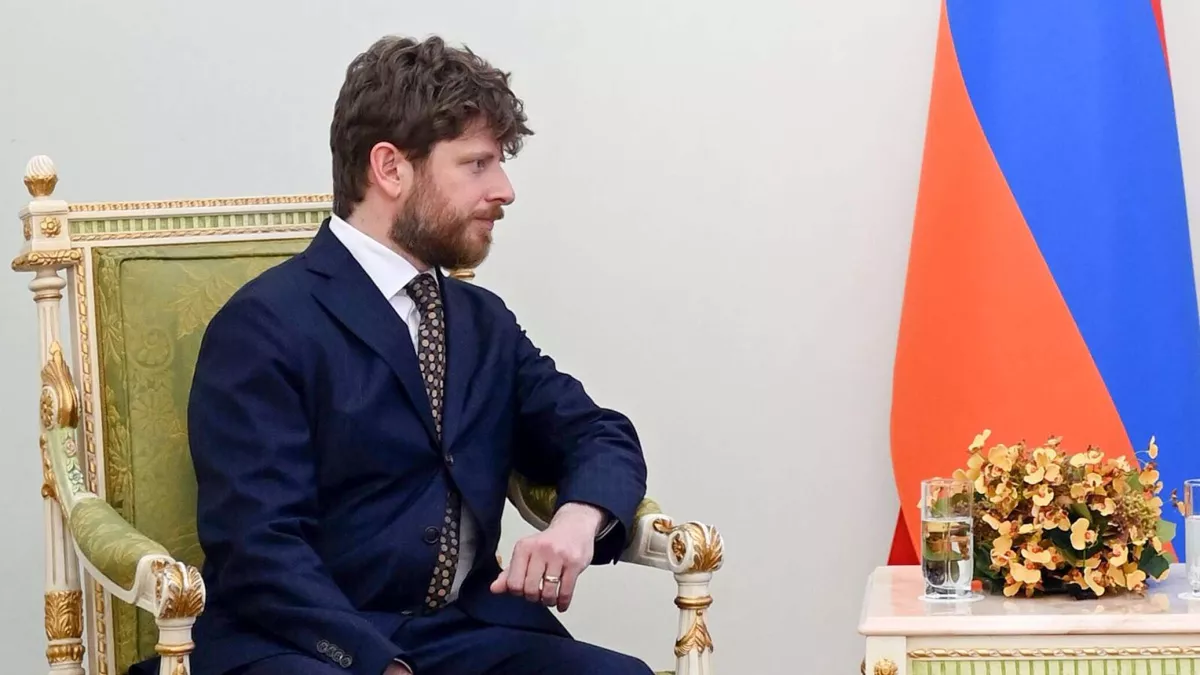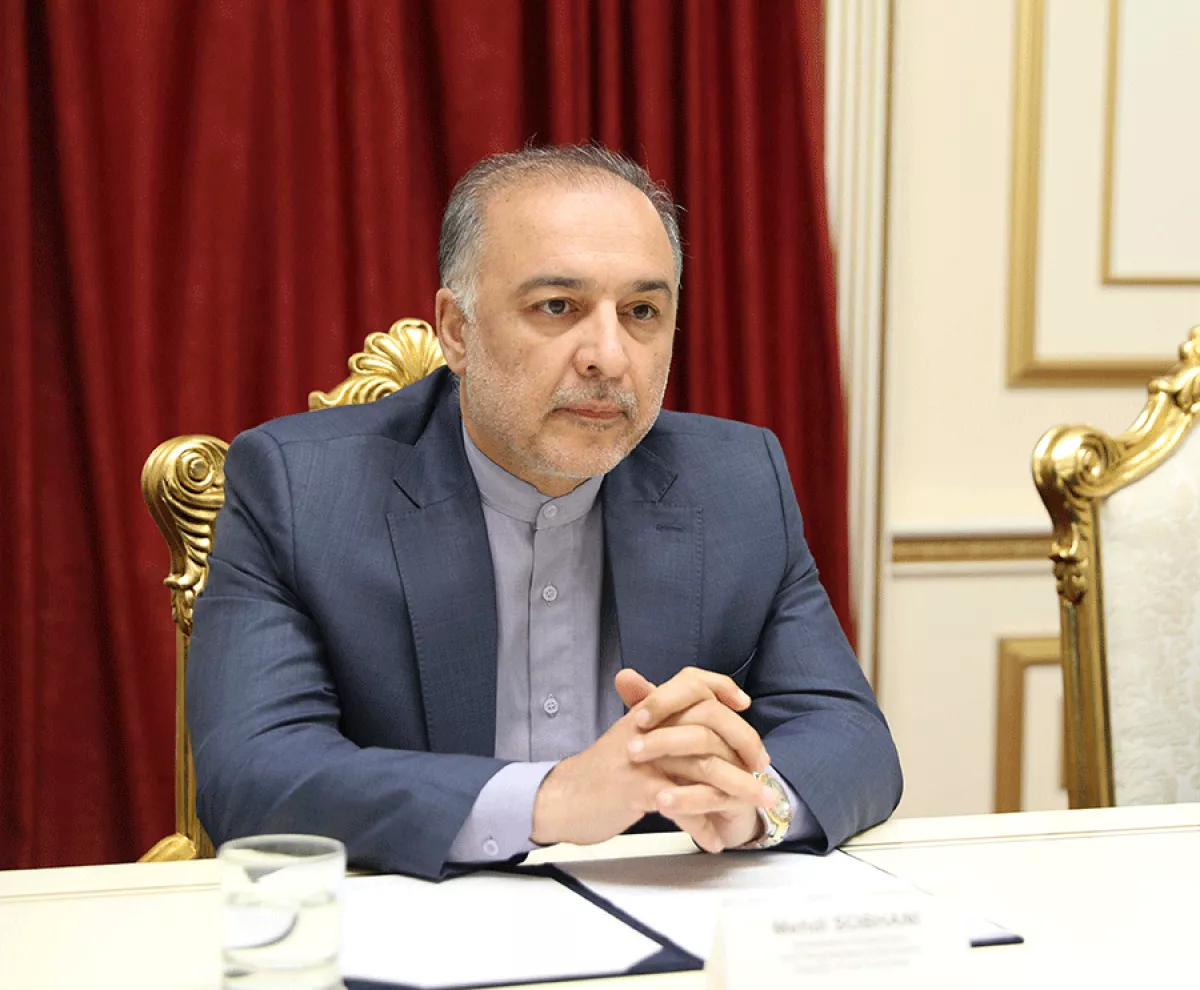France and Iran’s shared interests in Yerevan The Armenian garden of solidarity
We have already written about the special relationship between Paris and Tehran, which somewhat contrasts with the official narrative of the West's opposition to Iran. Two alternative conclusions can be drawn here: either Paris is playing its own game, or it is fulfilling the role of a mediator for the West in communications with the Islamic Republic of Iran. In any case, Paris needs its own agent to carry out assignments. And that agent has become Armenia – in fact, our recent material was dedicated precisely to this topic. The trio of Paris – Yerevan – Tehran is clearly taking shape.
One of the recent manifestations of this cultural program was a tweet by the French ambassador to Armenia, Olivier Decottignies. The post included two photographs with captions. The first was a photo of the Azerbaijani Blue Mosque in Yerevan, the only remaining monument from the era of the Erivan Khanate (as we know, during the city's reconstruction in the Soviet and post-Soviet periods, its historical appearance was erased and replaced with the "Armenian dream city" made of pink tuff). So, the ambassador posted a photograph of the Azerbaijani mosque with the caption: "In the garden of the Blue Mosque in Yerevan, a symbol of Armenia's Persian heritage."

The second photo is even more absurd. The diplomat copied an illustration of a map of Iran with the province of Western Azerbaijan highlighted in red, accompanied by the following caption: "The one and only." The caption above the map reads: "one of 31 provinces of Iran, whose capital and largest city is Urmia." Apparently, the ambassador intended to deny any connection between Azerbaijani history and the territory of modern-day Armenia.
Let's set aside the unprofessionalism of the ambassador. With such posts, he is effectively acting as a conduit for the interests of the host country, whereas he should be representing the interests of the accrediting state.
In this case, we are more interested in a deeper and more subtle layer than the ambassador's pro-Armenian stance. What matters more is his pro-Iranian position. Together, these two posts represent nothing less than Paris's solidarity with Tehran. This is quite strange, especially considering the at least officially declared antagonism between the West and the Islamic Republic of Iran. It's akin to French diplomats enthusiastically quoting Stalin in the midst of the ongoing Russia-Ukraine war.
By the way, another point of contention between the West and Iran has been Tehran's military cooperation with Moscow. However, even in the relationship between the two, things are not as smooth as they might seem, as was recently pointed out by Iran’s ambassador to Armenia, Mehdi Sobhani. In an interview with the American publication The New York Times, Sobhani stated that despite shared interests, Tehran and Moscow are not allies. According to Sobhani, Iranian and Russian interests in the South Caucasus differ significantly.

Indeed, against the backdrop of Moscow's diminishing grip on Armenia, Tehran is attempting to fill the void. As we recall, Moscow made the decision to transfer control of the checkpoint on the Armenia-Iran border in Meghri to Yerevan. One could speculate that Tehran, through Yerevan, pressured Moscow into making this decision. What else is this, if not preparation for establishing its own military presence in the "country of stones"?
All of this is happening amid escalating tensions between Washington and Tehran, fueled by the Iran-Israel confrontation and the election of Donald Trump as US president, a figure known for his hardline anti-Iran stance. However, this doesn't mean that cooperation between Iran and the West will cease. After all, the Iranians can't afford the luxury of being too selective. Hence, the Iranian ambassador gives an interview to an American publication.
For Azerbaijan, Iranian support for Armenia does not represent a military threat, but rather an obstacle to the unlocking of communication routes, which Tehran considers to be red lines. In that case, Yerevan's hopes of connecting to regional projects are unlikely to come to fruition.
The desire to secure "security guarantors" has not only overridden the common sense of Armenian politicians but also the function of strengthening sovereignty – because, in exchange for these guarantees, the countries representing them impose their own rules of play on Yerevan.
And in moments of relaxation, the ambassadors of these countries will continue to adorn their social media pages with clever and meaningless statuses, serving no purpose for the Armenian people.








